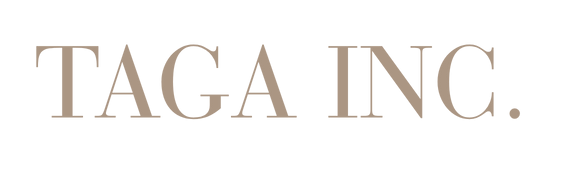Earned or Inherited: What Your Relationship with Money Reveals
“Life isn’t a game. Life is communication. Learn the language, or stay lost in translation.” — TAGA INC.
Author's Foreword
Most of us navigate the financial system without a clear map because the guidance we need is rarely given. I'm sharing what I've learned from my own missteps, and I’m confident you’ll find insights here that can shift how you relate to money.
Please be advised:
Knowledge is only useful when applied.
It's never just about the money — it's about what you're trying to prove with it.
Money is never neutral. It carries memory, mythology, and weight. It is the ledger of unmet desires, unspoken fears, and unclaimed power. We are taught to treat it as math, as numbers to tally and track. That is a lie. Money is language. And life? Life is communication. Learn the dialect, or stay forever mistranslated.
This is not about ease. This is about the stakes worth fighting for. We show up differently for what confirms our essence.
Take success. It is rarely labor alone. It demands the sacrifice of the identity that clings to comfort, mediocrity, and the familiar lie of limitation. It demands a war on your own inertia.
We believe value lives in accumulation. False. Value lives in removing excess. You do not need more. You need meaning.
Give a poor man $1. $100. $1,000. $1M. Does it change him?
Now reflect: you have earned tens, hundreds of thousands, possibly millions over the course of your life and equally spent as much.
This is why 70% of lottery winners go broke. Their identity is that of the receiver only, never the source. Money arrives from external channels, which means those same channels are able to take away access. The limiting belief is that money belongs elsewhere, anywhere but in your hands. It was impressed upon you, ingrained as a burden rather than experienced as the abundance others perceive.
Hard work doesn't guarantee financial wisdom.
Earning money alone does not make you the source.
If your self-concept is rooted in lack, you will inevitably sabotage it. What matters is who you are when it rests in your hands.
People do not merely desire money; they seek experiences that affirm who they are. Yet affirmation without conviction is a prison disguised as liberation.
What we truly seek is the trust to wield wealth and the courage to bear the responsibility it demands.
So what actually builds that kind of trust and endurance?
A new relationship with value. One that's not rooted in performance, validation, or appearance.
Here’s where the real work begins:
1. Emotional Literacy: Understand the feelings driving your financial behavior
Keep a spending journal—not just of purchases, but of the emotions before and after each decision.
Why? Because emotional conviction is what impresses the subconscious and sustains identity. According to the Hermetic principle of Cause and Effect, every outer action is the effect of an inner state. If you ever feel uncertain about your state, look at your results and, more importantly, your attitude toward them. Your emotions reveal the state you are operating from. By tracking them, you begin to see the direct link between identity (cause) and material results (effect).
2. Financial Identity: Clarity is a new kind of status
What is your relationship like with money? How do you define currency? Spend time actually discovering who you are in relation to these experiences. That alone, will enlighten you more than any course.
Define values around money that prioritize flow (or freedom) over possession.
Find someone who will hold you accountable to your standards.
If most of the people you surround yourself with carry negative money beliefs or operate below the level you aspire to, it’s time to reflect: Where are you now versus where could you be if you took full accountability for your situation? What does it look like? What does it feel like? Great. Now impress it. Seek it within you. It’ll have no choice but to materialize.
4. Cultural Detox: Unplug from hyper-consumerism
Unsubscribe. Mute. Unfollow. Recalibrate.
Replace scrolling with creation, learning, rest.
If you want to be exceptional, you must accept being the exception.
Following the crowd only guarantees you their results. There’s a reason it’s called the top 1%—few are willing to stand apart long enough to claim it. Will you?
5. Mindful Money: Pause. Reflect. Then act.
Ask: "Who am I being right now? Do I need this? Does this expand me?"
Reflect weekly. Refine. Recommit.
Note: The brain will always justify any emotional indulgence you feed it. Consume with intelligence.
Final Thought
True wealth isn’t what you can buy. It’s what you can walk away from without losing yourself.
What this does for you:
Builds Self-Control
You delay gratification and develop mental discipline.Shifts Identity Toward Intention
Your identity becomes about vision, not performance.Creates Boundaries
You get clear on what you allow, and what you don’t.Fosters Real Wealth
You develop habits that lead to true freedom: saving, investing, planning.Strengthens Emotionally
You learn to sit in discomfort without outsourcing relief.Restores Sovereignty
You become sovereign. Not ruled by endless wants, but ruled by will.
It’s not about how much you can have.
It’s about how deeply you can choose.
TAGA INC.
Luxury is Sovereignty. Imagination is Wealth.
